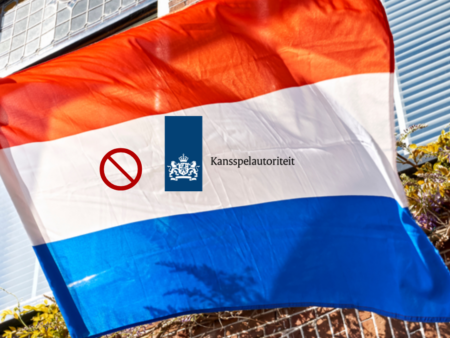In recent times, the proliferation of online gambling content has become a growing concern for governments worldwide. Indonesia is no exception, where Budi Arie Setiadi, the Minister of Communications and Informatics (Kominfo), has taken decisive steps to address this issue. The minister has reminded Internet Service Providers (ISPs) of their responsibility to cooperate with the government in curbing the spread of online gambling content. One of the primary measures advocated by Minister Setiadi is for ISPs to automatically synchronize by updating the list of negative content, including online gambling, to the Kominfo Positive Trust DNS.
Automatic Synchronization: A Crucial Step in Combating Online Gambling
Minister Setiadi emphasized the importance of automatic synchronization, revealing that only 35% of the total 1,011 ISPs have implemented this process. Those failing to comply will face public announcement and potential permit revocation. This stern warning underscores the government’s commitment to eradicating illegal online gambling activities.
Legal Framework and Regulatory Measures
The minister’s actions are firmly grounded in existing legal frameworks, including Law Number 36 of 1999 concerning Telecommunications and its amendments. Additionally, Minister Setiadi referred to Minister of Communication and Information Regulation Number 13 of 2019, which outlines the implementation of telecommunications services and associated amendments. These regulatory instruments provide the legal basis for enforcing cooperation between ISPs and the government in tackling online gambling.
Addressing the Challenge of Illegal Online Gambling
Despite Indonesia’s strict prohibition of gambling, illegal online gambling remains a persistent challenge. The government recognizes the detrimental impact of such activities on society and is committed to addressing them comprehensively. Minister Setiadi’s proactive stance reflects the government’s determination to safeguard public interests and uphold the rule of law.
The Role of ISPs in Combating Online Gambling
ISPs play a crucial role in the fight against online gambling by ensuring that their platforms are not used to disseminate illegal content. Automatic synchronization with the Kominfo Positive Trust DNS enables ISPs to block access to websites hosting online gambling activities. By complying with government directives, ISPs contribute to maintaining the integrity of Indonesia’s digital space and protecting citizens from the harmful effects of online gambling.
Conclusion: The Collaboration
The collaboration between ISPs and the Indonesian government is essential in combating the proliferation of online gambling content. Minister Setiadi’s directive highlights the government’s unwavering commitment to upholding regulatory standards and safeguarding societal well-being. Through collective action and adherence to legal frameworks, Indonesia aims to create a safer online environment for its citizens.
FAQs About Indonesia’s Measures Against Online Gambling
1. What is the current stance of the Indonesian government on online gambling?
The Indonesian government, led by Minister of Communications and Informatics Budi Arie Setiadi, has taken decisive steps to combat the proliferation of online gambling content. Minister Setiadi has emphasized the importance of cooperation between Internet Service Providers (ISPs) and the government in curbing the spread of illegal online gambling activities.
2. What is automatic synchronization, and why is it significant in combating online gambling?
Automatic synchronization refers to the process by which ISPs update their list of negative content, including online gambling, to comply with the Kominfo Positive Trust DNS. This process is crucial as it allows ISPs to block access to websites hosting illegal online gambling activities, contributing to the government’s efforts to maintain the integrity of Indonesia’s digital space.
3. What percentage of ISPs have implemented automatic synchronization, and what consequences do those failing to comply face?
According to Minister Setiadi, only 35% of the total 1,011 ISPs have implemented automatic synchronization. ISPs failing to comply with this directive may face public announcement and potential permit revocation, highlighting the government’s commitment to eradicating illegal online gambling activities.
4. What legal frameworks support Indonesia’s measures against online gambling?
Indonesia’s actions against online gambling are firmly grounded in existing legal frameworks, including Law Number 36 of 1999 concerning Telecommunications and its amendments. Minister Setiadi also referred to Minister of Communication and Information Regulation Number 13 of 2019, which outlines the implementation of telecommunications services and associated amendments, providing the legal basis for cooperation between ISPs and the government.
5. Despite strict prohibition, why does illegal online gambling persist in Indonesia?
Despite Indonesia’s strict prohibition of gambling, illegal online gambling remains a persistent challenge. The government recognizes the detrimental impact of such activities on society and is committed to addressing them comprehensively through proactive measures and enforcement of regulatory standards.
6. What role do ISPs play in combating online gambling in Indonesia?
ISPs play a crucial role in combating online gambling by ensuring that their platforms are not used to disseminate illegal content. Automatic synchronization with the Kominfo Positive Trust DNS enables ISPs to block access to websites hosting online gambling activities, contributing to the government’s efforts to protect citizens from the harmful effects of online gambling.
7. How does the collaboration between ISPs and the Indonesian government contribute to combating online gambling?
The collaboration between ISPs and the Indonesian government is essential in combating the proliferation of online gambling content. Minister Setiadi’s directive highlights the government’s commitment to upholding regulatory standards and safeguarding societal well-being, aiming to create a safer online environment for citizens through collective action and adherence to legal frameworks.


















